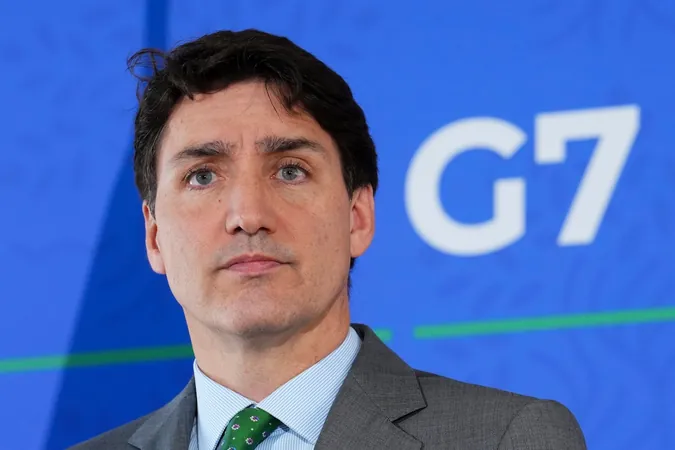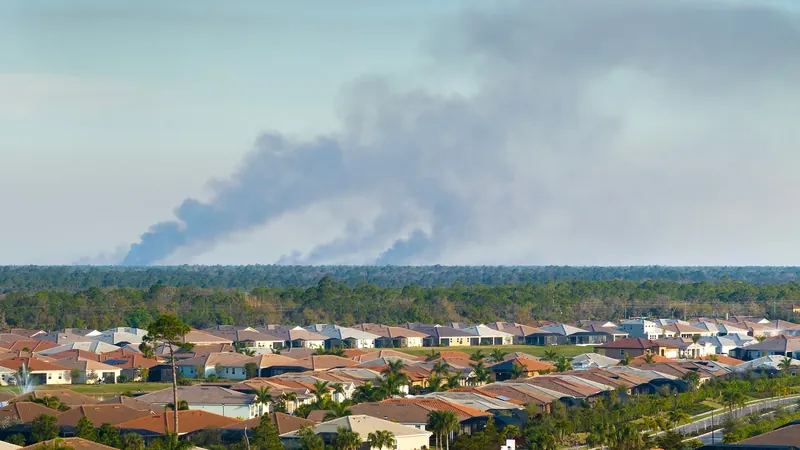
Canada to Lead the G7 in 2025: What It Means for Global Politics and Future Challenges
2025-01-02
Author: Jacob
Understanding the G7
The G7, which includes the United States, France, Germany, Japan, the United Kingdom, Italy, and Canada, along with the European Union, has played a crucial role in coordinating responses to pressing economic and societal issues for over five decades. Unlike organizations with formal structures, the G7 operates on consensus, and its presidency rotates among member states.
Canada, which joined in 1976, will be hosting the G7 summit for the seventh time, with plans to hold the leaders’ summit from June 15 to 17 in Kananaskis, Alberta. The presidency will involve a series of meetings among senior officials discussing vital topics from defense to digital governance, engaging civil society and business leaders.
Significance of G7 Membership
High-profile officials, including U.S. National Security Adviser Jake Sullivan, have referred to the G7 as the "steering committee of the free world." For Canada, participation in the G7 is a key avenue for influencing global policy while ensuring its own economic and security interests are protected. Historically focusing on economic issues, the G7 has evolved to address human rights, rule of law, and open market principles—responses to the rising influence of powers like China and India.
Canada’s Priorities for 2025
As Canada gears up for this leadership role, it's expected to emphasize priorities such as building inclusive economies, combating climate change, and managing rapid technological advancements. Prime Minister Justin Trudeau has previously highlighted his commitment to supporting Ukraine amidst ongoing conflicts and addressing human rights through responsible use of artificial intelligence.
Moreover, civil society groups advocate for agenda items such as the confiscation of Russian assets to finance Ukraine and reversing cuts to foreign aid that have hampered progress in health initiatives. There's even a call to revive past agreements aimed at reducing the threats posed by chemical and nuclear weapons.
Looking Ahead: Challenges and Strategic Meetings
Canada's G7 year will likely include fewer meetings than Italy's 24 held in 2024, with plans for more efficient pairings of ministerial gatherings. Timing is crucial, particularly with Canada's electoral calendar and the looming uncertainty in U.S.-Canada relations, especially with Donald Trump potentially returning as president.
Trump's history with the G7 has been contentious; during Canada’s last hosting in 2018, he notably refused to endorse the final communiqué. His actions have created a climate of uncertainty regarding the future of multilateralism, leaving Canada to navigate relationships tactfully in the face of changing U.S. administrations.
Political Landscape and the Road Ahead
Adding to the intrigue, Canada’s internal political landscape is fraught with challenges, particularly following recent turbulence within Trudeau's government and the resignation of finance minister Chrystia Freeland. If Trudeau manages to sustain his government until the summit, he will be the longest-serving leader among the G7 peers, bringing a wealth of experience into the discussions.
As Canada takes on the G7 presidency, it faces an opportunity to enhance its influence on the global stage. With a focus on pressing global issues and a commitment to collaborative efforts for peace and stability, Canada aims to position itself as a vital diplomatic player in an increasingly complex world.









 Brasil (PT)
Brasil (PT)
 Canada (EN)
Canada (EN)
 Chile (ES)
Chile (ES)
 Česko (CS)
Česko (CS)
 대한민국 (KO)
대한민국 (KO)
 España (ES)
España (ES)
 France (FR)
France (FR)
 Hong Kong (EN)
Hong Kong (EN)
 Italia (IT)
Italia (IT)
 日本 (JA)
日本 (JA)
 Magyarország (HU)
Magyarország (HU)
 Norge (NO)
Norge (NO)
 Polska (PL)
Polska (PL)
 Schweiz (DE)
Schweiz (DE)
 Singapore (EN)
Singapore (EN)
 Sverige (SV)
Sverige (SV)
 Suomi (FI)
Suomi (FI)
 Türkiye (TR)
Türkiye (TR)
 الإمارات العربية المتحدة (AR)
الإمارات العربية المتحدة (AR)